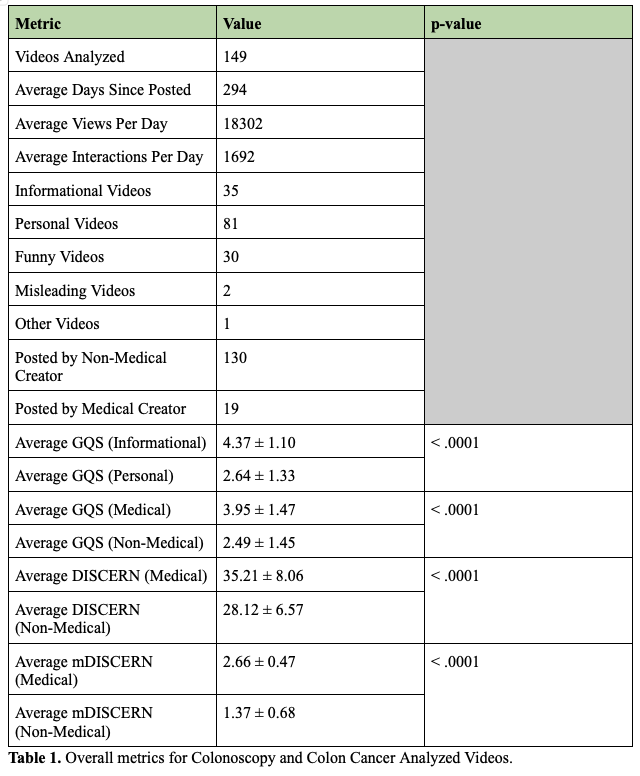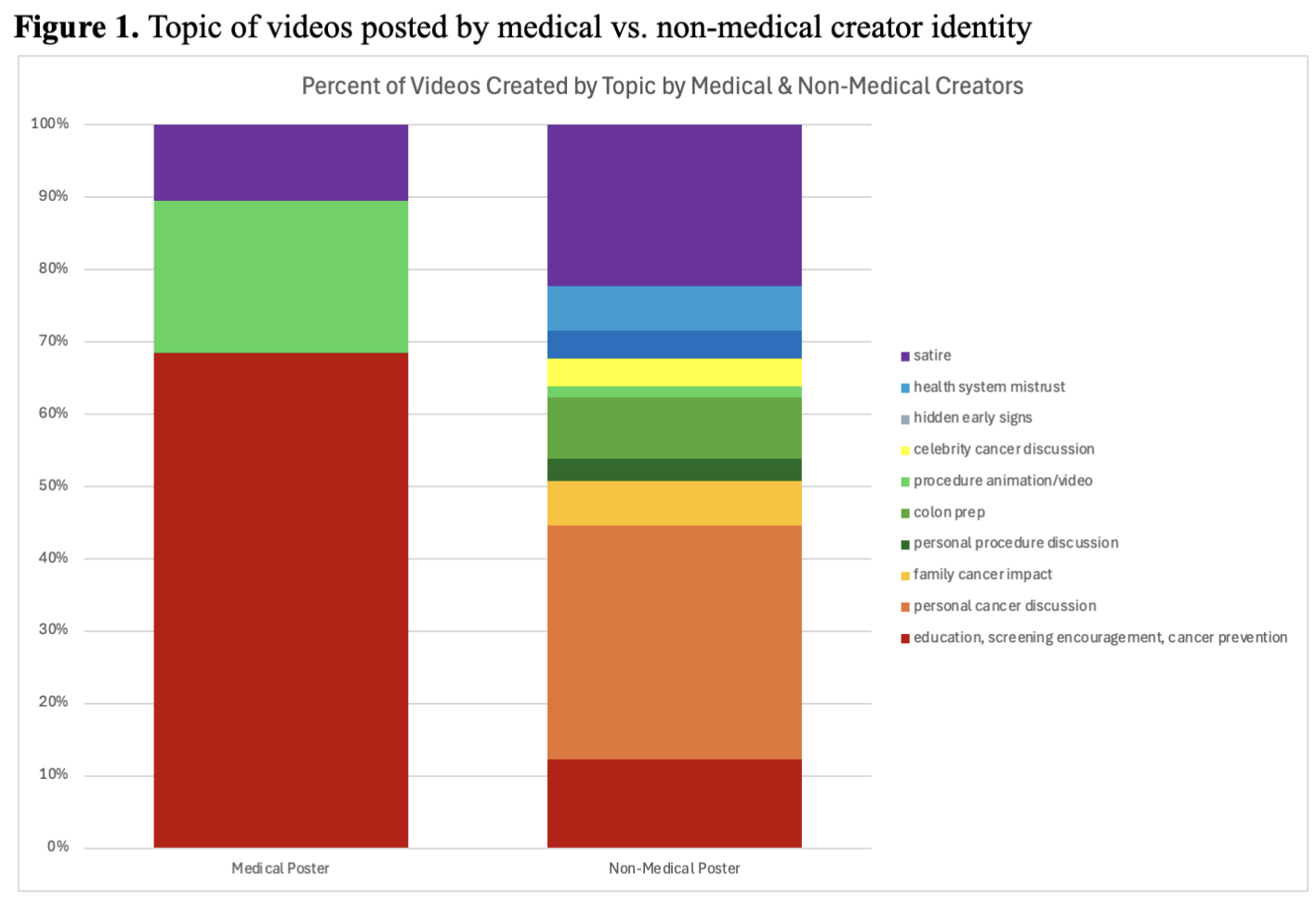Monday Poster Session
Category: Colon
P2417 - Butt Seriously, a Cross-Sectional Study Evaluating Colonoscopy Content on Social Media
- SY
Seo Yeon Yoo, BA (she/her/hers)
Rutgers New Jersey Medical School
Newark, NJ
Presenting Author(s)
1Rutgers New Jersey Medical School, Bloomfield, NJ; 2Rutgers New Jersey Medical School, Newark, NJ
Introduction:
Colorectal cancer is the second leading cause of cancer-related deaths worldwide, with rising incidence among young adults reflecting the need for effective public education and early detection strategies. The National Comprehensive Cancer Network (NCCN) estimates a drastic increase in the incidence of colon cancer (90%) and rectal cancer (124.2%) among young adults aged 20-34 by 2030. As social media platforms such as TikTok become a dominant source of health information, understanding the reliability of their colonoscopy- and colon cancer-related content is critical. This study assesses the quality, credibility, and engagement of TikTok videos discussing colonoscopy and colon cancer to determine the platform’s utility for providing reliable and evidence-based health information.
Methods:
The hashtags #coloncancer and #colonocopy were surveyed on TikTok, and the top 200 videos were collected using a web scraping tool. After removing non-English, duplicate, and non-relevant videos, the remaining 149 videos were categorized by type (informational, personal, funny, misleading, or other) and creator identity (medical vs. non-medical). Informational content was evaluated using DISCERN and PEMAT (understandability and actionability) tools, and overall quality was scored using the 5-point Global Quality Scale (GQS). Descriptive statistics and unpaired t-tests were performed to assess differences in quality and engagement.
Results:
Of the 149 eligible videos, 35 were informational, 81 personal, 30 funny, 2 misleading, and 1 other. Informational videos had a significantly higher GQS (mean 4.37) compared to personal videos (mean 2.64, p < 0.0001). Medical creators produced higher-quality content, with average DISCERN scores of 35.2 versus 28.1 for non-medical creators (p < 0.0001), and mDISCERN scores of 2.66 vs. 1.37 (p < 0.0001). However, non-medical videos averaged significantly more interactions per day (1886 vs. 362, p = 0.10) and more views per day (19786 vs. 8146), though not statistically significant.
Discussion:
These findings display the paradox that high-quality content, often produced by medical professionals, is less engaging than personal, lower-quality videos. As colon cancer rates continue to climb among young adults and as social media continues to dominate as a source of health information, improving the accuracy and visibility of credible, evidence-based TikTok content represents an opportunity for early education, screening awareness, and cancer prevention. 
Figure: Table 1. Overall metrics for Colonoscopy and Colon Cancer Analyzed Videos.
Figure: Figure 1. Topic of videos posted by medical vs. non-medical creator identity
Disclosures:
Jasmine Baste indicated no relevant financial relationships.
Seo Yeon Yoo indicated no relevant financial relationships.
Rhema Dadala indicated no relevant financial relationships.
Yasheel Pandya indicated no relevant financial relationships.
Noah Youssef indicated no relevant financial relationships.
Kaveh Hajifathalian indicated no relevant financial relationships.
Jasmine Baste, BS1, Seo Yeon Yoo, BA2, Rhema Dadala, BS2, Yasheel Pandya, BS, BA2, Noah Youssef, BS, MS2, Kaveh Hajifathalian, MD2. P2417 - Butt Seriously, a Cross-Sectional Study Evaluating Colonoscopy Content on Social Media, ACG 2025 Annual Scientific Meeting Abstracts. Phoenix, AZ: American College of Gastroenterology.
